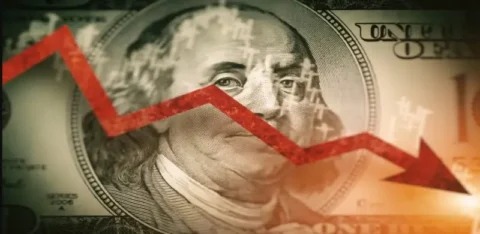Contents
The United Arab Emirates (UAE) is steering its focus towards local currency over the US dollar in new oil deals. Thus, echoing the de-dollarization trend within the BRICS economic alliance. This shift signifies a strategic move coinciding with broader efforts across the alliance to diminish reliance on Western currencies.
Key Highlights:
- UAE shifts focus from US dollar to local currency in new oil deals, aligning with BRICS’ de-dollarization efforts.
- BRICS expansion includes UAE, signaling a strategic move away from traditional economic alliances.
- UAE’s proactive pursuit of new oil partners potentially disrupts US dollar dominance in global oil trade.
- Strategic endeavors aim to redefine international oil trade structure beyond currency diversification.
- UAE engages in oil and gas deals with 15 countries, including influential BRICS members advocating de-dollarization.
BRICS Expansion and Economic Realignments
As part of BRICS‘ expansion, the UAE joined hands with Saudi Arabia, Egypt, Ethiopia, Iran, and Argentina. thus, marking a significant move away from conventional economic partnerships. Recent reports indicate the UAE’s proactive pursuit of fresh oil trading alliances, potentially disrupting the dominance of the US dollar in global oil trade.
The ongoing developments suggest a transformative phase in global oil trade dynamics. The UAE’s proactive approach to exploring new oil partners could significantly impact the status quo. However, potentially altering the prevailing power balance in global economics.
UAE’s Strategic Endeavor for New Oil Deals
The UAE’s initiative to diversify its oil trading network underscores its adaptability and strategic foresight in navigating the evolving economic terrain. This pursuit extends beyond mere currency diversification; it aims to redefine the fundamental structure of international oil trade.
Also Read: Oil Prices Inch Up as OPEC+ Meeting Anticipates Output Cut
BRICS Influence on Oil Deals Trade Dynamics
Reports reveal the UAE’s endeavors to establish oil and gas deals with nearly 15 countries. Including influential players like China, Russia, and Egypt – all pivotal BRICS members advocating de-dollarization. This strategic alignment amplifies the significance of the UAE’s actions in reshaping global economic paradigms.
According to the Financial Times, the UAE plans to leverage the COP28 summit it hosts to propose oil and gas deals to foreign governments. The country aims to engage with 15 nations, including China, Russia, and Egypt, aligning with their de-dollarization stance.
BRICS Cohesion in De-Dollarization Goals
The involvement of China and Russia, both actively pursuing alternatives to the US dollar in trade, amplifies the importance of the UAE’s potential shift away from the dollar. Such alignment could significantly bolster BRICS’ objectives in reshaping global economic frameworks.
This news signifies a pivotal moment as the UAE, a newly integrated BRICS member, actively seeks to recalibrate its commodities ties. Moreover, potentially ushering in a new era in global trade dynamics.
Conclusion
The UAE’s concerted efforts to prioritize local currency over the US dollar in oil deals mark a pivotal moment in global economic realignment. Thus, this strategic shift, aligned with BRICS’ de-dollarization goals, could potentially reshape the dynamics of international trade, ushering in a new era in global economic relations.








